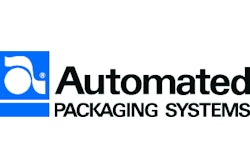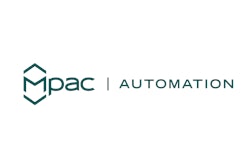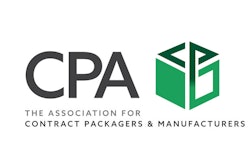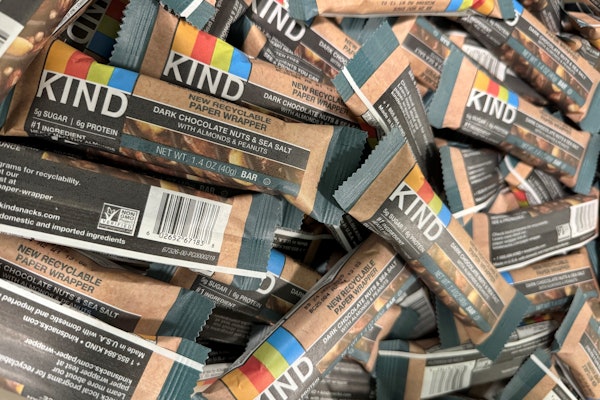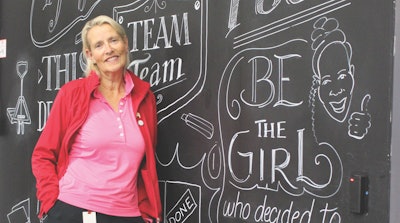
Since launching her marketing and design business, The Freelance Portfolio, Inc., in 1982, Carol Levy has approached projects with a “whatever-it-takes” philosophy, a mindset that now permeates her co-packing/3PL business as well. It’s an attitude that has helped propel the business to 1,375% growth in the last 18 years and has led to customer testimonials such as this one, from John Gaulin, COO of Tender Company: “In all my years of business, I’ve never dealt with a company that is so invested in my success.”
Repack Canada, of Toronto, ON, CAN, is a family-run, all women-led contract packaging and order fulfillment business serving Canadian and U.S. national and multinational brands in markets that include food, pharmaceutical products, precursor products, and spirits. Its services are wide in scope. They include graphic design, kit assembly, club packs, sales promotions, custom displays, pallet displays, hand assembly, shrink wrap, bundle wrapping, labeling, pick-and-pack, and more—basically, whatever it takes.
“Our whatever-it-takes service commitment is what keeps our clients coming back to us year after year,” says Levy. “I can’t always compete on price, but I can compete on service, and you’ll never get better service than you will from me or anyone else in the company. That makes a difference when we’re asked to do some ridiculous things in ridiculous time frames. If I say it will be done, it will be done.”
And, due to the supportive, family-like atmosphere of the company, Levy says employees stand at the ready to meet those “ridiculous” deadlines or challenging projects. “Everybody pulls together. And if they have to stay late, they will do it. If they have to work on a Saturday, they will do it. There’s real comradery,” she says.
Never say no leads to new business
Like many entrepreneurs, Levy began her business in her home—in her screened-in porch, to be exact. Levy was a typesetter and illustrator who saw an opportunity to provide graphic design services to Consumer Packaged Goods companies, which, due to the recession, were cutting their in-house design departments.
Levy explains how she made the leap to contract packaging: “Because of my whatever-it-takes attitude, I have a lot of trouble saying no. When a customer asks me if I can do something, I always say yes, even when it possibly should have been a no.”
So, when Kimberly-Clark asked her to assemble a Kleenex promotion for a dealer display, she said yes. Levy had designed the promotion, a fold-out dollhouse the consumer could send away for, along with an FSI (free-standing insert) and a shelf talker. Kimberly-Clark then decided that each dealer—there were 267 of them—should get one, fully assembled, with a different-size pack of Kleenex in each room. They asked Levy to do the job.
“The Kimberly-Clark transport pulled up in front of my house in downtown Toronto [to deliver the products] and said, ‘What’s the matter, don’t you even have a loading dock?’ And I said, ‘I don’t even have a driveway.’ So we unloaded them on the sidewalk, and I hoofed them into the house. And I built 267 of them in my dining room. And that’s sort of how contract packaging started for us.”
Another job entailed putting a sticker on a packet of Coffee-mate Creamer, punching a hole in it, putting a six-inch piece of elastic on it, and tying it around a Nescafé container in the store—150,000 times. For that project, Levy enlisted the aid of any friend willing to help with the tedious task.
In the mid-90s, Levy’s growing company began working with a nearby co-packer, Repack Canada, to handle larger projects, especially those pharmaceutical jobs needing to comply with rules and regulations. In 2000, Levy bought the company, and it has been expanding ever since.
Continuous growth
Repack’s first facility, in Milton, ON, was 4,000 sq ft. After five moves, the company now resides in a 55,000-sq-ft facility, nearly double the space of its previous plant. While Levy says they acquired the building with the intention of having plenty of room to grow, it has filled up quickly in the year since they moved in. “You can’t be efficient if you don’t have enough room,” she says. “Part of the reason for moving was to always have workspace set up, so when a job comes in, we don’t have to rearrange the whole place just to do it.”
Another reason was to have space to add clean rooms so they can add primary packaging to their services. “We turn down a lot of business for primary packaging,” Levy says. “It’s not about formulating pills or having a lab or making hot dogs, or anything like that, but simply putting on some gloves, a hairnet, and a lab coat and being in a clean environment where you could, for example, overwrap muffins in a flow wrapper or package bulk tea into smaller containers.”
Levy estimates Repack will have clean rooms set up that have the proper documentation and licenses for primary packaging within a year. This will be in addition to the many licenses it already holds. These include a Health Canada Drug Establishment License that allows it to provide over-labeling and packaging services for pharmaceutical goods and a Health Canada Precursor Class A License, which allows it to handle any product containing pseudoephedrine hydrochloride. A Spirit License means Repack can handle, pack, and warehouse liquor products, and an Excise Warehouse license means it is authorized to possess non duty-paid packaged alcohol or tobacco products that are not stamped. In addition, the company has procedures in place for distribution records and product recalls and for the handling, storage, and delivery of Natural Health Products. It also follows Good Manufacturing Practices (GMPs) by keeping up-do-date and regularly-reviewed Standard Operating Procedures (SOPs).
At its plant, Repack operates an impressive array of automated packaging equipment, including bundle and shrink wrappers, automated cartoners, ink-jet printers for lot coding, and high-speed labeling machines.
In April 2018, Repack purchased an Mpac Langen B1-M semi-automatic cartoner that gives them the ability to produce kits and sets of non-food or pre-packaged food items in retail cartons. The machine forms the cartons, operators manually fill them, then the cartons are automatically closed and glued. Says Levy, Repack is seeing requests to carton a range of products, from oatmeal sachets to sanitary napkins.





